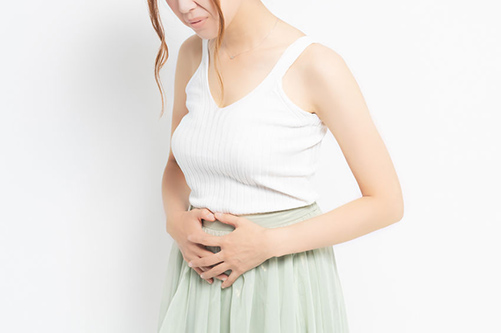Interstitial Cystitis Treatment in St. George, UT
Urology Associates

Interstitial Cystitis also known as Chronic Pelvic Pain Syndrome is a chronic, painful bladder condition that causes urinary urgency and frequency as well as pain, pressure and discomfort that are perceived to be coming from the bladder.
Symptoms
Interstitial Cystitis symptoms feel like those of a bladder infection (although no infection is present) and range from mild to severe and can go into remission or flare up.
If you have IC, you may have:
- Frequency: The need to urinate 8 or more times a day and more than once at night
- Urgency: Feeling the urgent need to urinate (even right after a trip to the bathroom) accompanied by pain, burning or bladder spasms
- Pelvic Pain: Pain and tenderness in the lower abdomen, genital area, during sex, or pain that gets better or worse as the bladder empties.
We are proud of our commitment to health care and preventive care in St. George, UT! Using only the most current techniques and technologies. At Urology Associates we've grown a reputable practice built on excellence. Schedule an appointment today for more information about our services!
Comprehensive Urology
Services for Men & Women
Interstitial Cystitis Testing and Treatment
Testing & Evaluation
Most people live with symptoms of interstitial cystitis for several years before their condition is diagnosed and they begin treatment. Part of the challenge in diagnosing interstitial cystitis is that there is no definitive test to confirm its presence. Instead, interstitial cystitis is considered a “diagnosis of exclusion,” meaning that your healthcare provider must rule out other possible conditions that may be causing your symptoms.
Some of the tests your doctor may perform leading to the diagnosis of interstitial cystitis include urine cultures (to rule out infection), a physical exam, and a cystoscopy or an examination of the bladder with a lighted scope that is passed through the urethra. Your doctor may also order additional tests to rule out other suspected causes of your symptoms.
Treatment
- Lifestyle Modifications: With careful attention, most people can identify and avoid triggers that make their interstitial cystitis symptoms worse. Common triggers include acidic or tart foods, caffeine, carbonated beverages, and alcohol. Drinking more water will dilute urine and can help minimize interstitial cystitis flare-ups. Managing your stress is another way to help your body cope.
- Oral Medications: ELMIRON (pentosan polysulfate) is the only FDA-approved medication designed specifically to treat interstitial cystitis symptoms. It is believed to work by helping your body to form a protective coating on your bladder wall. This coating repairs defects in the lining and reduces bladder spasms.
- Bladder Instillation: A combination of liquid medicines are inserted into your bladder through a catheter to reduce swelling and prevent muscle spasms.
- Pelvic Floor Physical Therapy: Physical therapy that targets the pelvic floor muscles can help you learn to relax a tense pelvic floor that may be contributing to bladder pain and urinary symptoms. Physical therapy is commonly paired with biofeedback or digital monitoring of your body’s responses that you can use to help you train and control your pelvic floor muscles.
- Neuromodulation / Sacral Nerve Stimulation Therapy: A small device is implanted in your lower back. The device sends mild electrical currents to the sacral nerves at the base of your spine that helps control your bladder, ease pain and reduce how often you need to urinate.
We are proud of our commitment to health care and preventive care in St. George, UT! Using only the most current techniques and technologies. At Urology Associates we've grown a reputable practice built on excellence. Schedule an appointment today for more information about our services!

